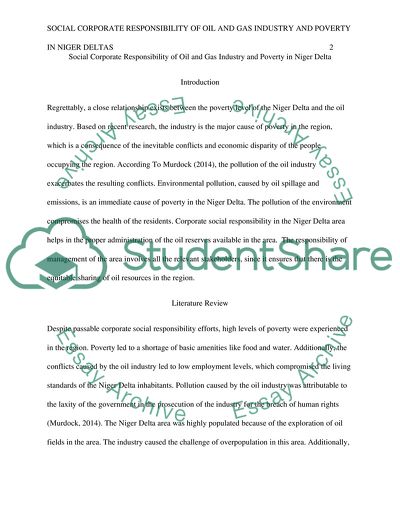Cite this document
(Social Corporate Responsibility of Oil and Gas Industry Coursework Example | Topics and Well Written Essays - 1250 words, n.d.)
Social Corporate Responsibility of Oil and Gas Industry Coursework Example | Topics and Well Written Essays - 1250 words. https://studentshare.org/social-science/1830452-social-corporate-responsibility-of-oil-and-gas-industry-and-poverty-in-niger-delta
Social Corporate Responsibility of Oil and Gas Industry Coursework Example | Topics and Well Written Essays - 1250 words. https://studentshare.org/social-science/1830452-social-corporate-responsibility-of-oil-and-gas-industry-and-poverty-in-niger-delta
(Social Corporate Responsibility of Oil and Gas Industry Coursework Example | Topics and Well Written Essays - 1250 Words)
Social Corporate Responsibility of Oil and Gas Industry Coursework Example | Topics and Well Written Essays - 1250 Words. https://studentshare.org/social-science/1830452-social-corporate-responsibility-of-oil-and-gas-industry-and-poverty-in-niger-delta.
Social Corporate Responsibility of Oil and Gas Industry Coursework Example | Topics and Well Written Essays - 1250 Words. https://studentshare.org/social-science/1830452-social-corporate-responsibility-of-oil-and-gas-industry-and-poverty-in-niger-delta.
“Social Corporate Responsibility of Oil and Gas Industry Coursework Example | Topics and Well Written Essays - 1250 Words”. https://studentshare.org/social-science/1830452-social-corporate-responsibility-of-oil-and-gas-industry-and-poverty-in-niger-delta.


